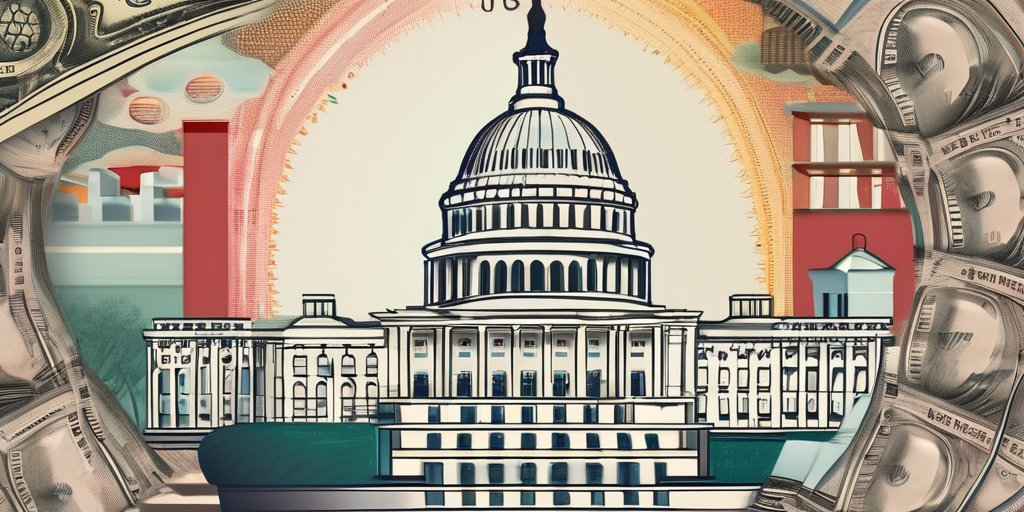President Donald Trump’s proposed mega-budget bill, officially titled the One Big Beautiful Bill Act, has successfully passed the Senate and is now poised for consideration in the House of Representatives. This landmark legislation has ignited fervent debates regarding federal spending, deficits, and social programs within a Republican Party that currently dominates both congressional chambers.
The Senate’s passage required Vice President JD Vance to cast a tie-breaking vote, reflecting the bill’s narrow approval. The House previously passed an earlier version of the bill by a mere single vote, indicating that its future remains uncertain. The proposed legislation seeks to institutionalize previously temporary tax cuts enacted during Trump’s initial presidency while significantly boosting funding for border security, defense, and energy production.
**Key Features of Trump’s Mega-Bill**
Among the standout provisions of this bill is the proposal to eliminate taxes on Social Security income, a promise Trump pledged on the campaign trail. Although the House bill fell short of fully accomplishing this goal, it does aim to temporarily elevate the standard deduction by up to $4,000 for individuals aged 65 and over from 2025 to 2028.
Moreover, the legislation introduces stringent new requirements for Medicaid, the healthcare program that millions of low-income and disabled Americans rely on. Notably, childless adults will be required to work at least 80 hours monthly starting in December 2026 to qualify for Medicaid, a move that likely constitutes the toughest adjustment Republicans have ever proposed.
### Revisions to Key Social Programs
Key changes to the Supplemental Nutrition Assistance Program (SNAP) have also been introduced. The Senate bill mandates that states contribute a higher percentage for SNAP costs, shifting some financial responsibility away from the federal government, particularly on states with an error payment rate above 6%. Other reforms include increased work requirements for able-bodied individuals who receive SNAP benefits without dependents.
The legislation also seeks to lift the cap on the state and local tax deduction (SALT) from $10,000 to $40,000 for five years before reverting back to its original limit. This deduction change has significant implications for taxpayers in higher-tax areas, complicating negotiations among House Republicans.
In a bid aligned with Trump’s campaign promises, the bill proposes no taxes on tips and overtime wages while increasing the child tax credit to $2,200, although this amount is less than the figure previously suggested in the House.
### Environmental Considerations and Bipartisan Challenges
On the environmental front, the Senate version proposes an extension of clean energy tax credits. It balances the ambition of phasing out federal clean energy tax credits while preserving economic viability for wind and solar farm developers.
As Trump gears up for a potential return to the presidency, the bill could serve as a test to solidify his fiscal and social policy priorities. The Congressional Budget Office anticipates that the skyrocketing deficits projected at $3.3 trillion over the next decade, alongside the potential reduction in health coverage for millions, could pose challenges for its passage in the House.
With a self-imposed 4 July deadline looming, the legislation’s future remains unclear, and the stakes could significantly impact millions of Americans relying on these federal programs.
